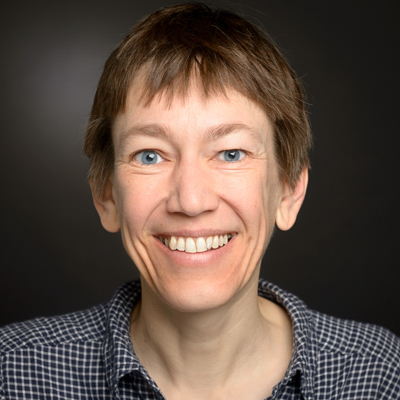- History Home
- People, Leadership & Service
- A Legacy of Excellence
- History & Impact
- Meetings Through the Years
- Resources
Biography - Jacqueline M. ColeBiography | Publications | Curriculum Vitae | Videos | Slides | Articles | Obituary
Jacqui earned a Ph.D. in Chemistry from the In-stitut Laue Langevin, France, and the University of Durham, UK, studying non-linear-optical materials. Organic-based devices are finding wide applications in telecommunications, in optical information storage, and in optical computing. Her work concentrated on screening and selection of suitable candidates, on structure determination to relate the molecular packing to the non-linear-optical response, and on charge-density studies that allow unique determination in the solid state of the molecular hyperpolarisability. Her thesis had considerable significant scientific value and set her well on her path for an independent career. As she continued in her career, Jacqui also acquired higher education in mathematics and physics, culminating in a Ph.D. in Physics from the University of Cambridge. This background permits her to successfully attack challenging multidisciplinary problems in the field of functional materials. She is a creative and innovative researcher. Jacqui has been a pioneer in the development of the technique of photocrystallography and was the first to start using it to develop a series of photo-excited materials. Very recently she discovered and characterized opto-nanomechanical transduction in a further set of new materials. She pioneered the use of charge-density analysis to determine the solid-state molecular dipole moment of the subject organic non-linear optical material and compared it to gas and liquid-phase values from electronic structure calculations. She produced the first large-scale data-mining study of new dye molecular building blocks for dye-sensitized solar cells, coupling materials prediction with experimental validation. Jacqui has made important contributions to materials discovery for optical materials using a variety of techniques: photo-crystallography, application of molecular design rules and the integration of numerical and ab initio modeling, as well as pioneering the application of data-mining to discover new dyes, and automatic text-mining to build databases. While centered on crystallographic techniques, she has brought together an enormous range of methods to produce breakthrough discoveries of new materials, and a systematic approach to modifying materials properties. |

 Jacqueline M. Cole, Head of the Molecular Engineering group in the Cavendish Laboratory at the University of Cambridge, is the recipient of the 2021 B. E. Warren Diffraction Physics Award. This award “recognize[s] an important recent contribution to the physics of solids or liquids using X-ray, neutron or electron diffraction techniques.”
Jacqueline M. Cole, Head of the Molecular Engineering group in the Cavendish Laboratory at the University of Cambridge, is the recipient of the 2021 B. E. Warren Diffraction Physics Award. This award “recognize[s] an important recent contribution to the physics of solids or liquids using X-ray, neutron or electron diffraction techniques.”